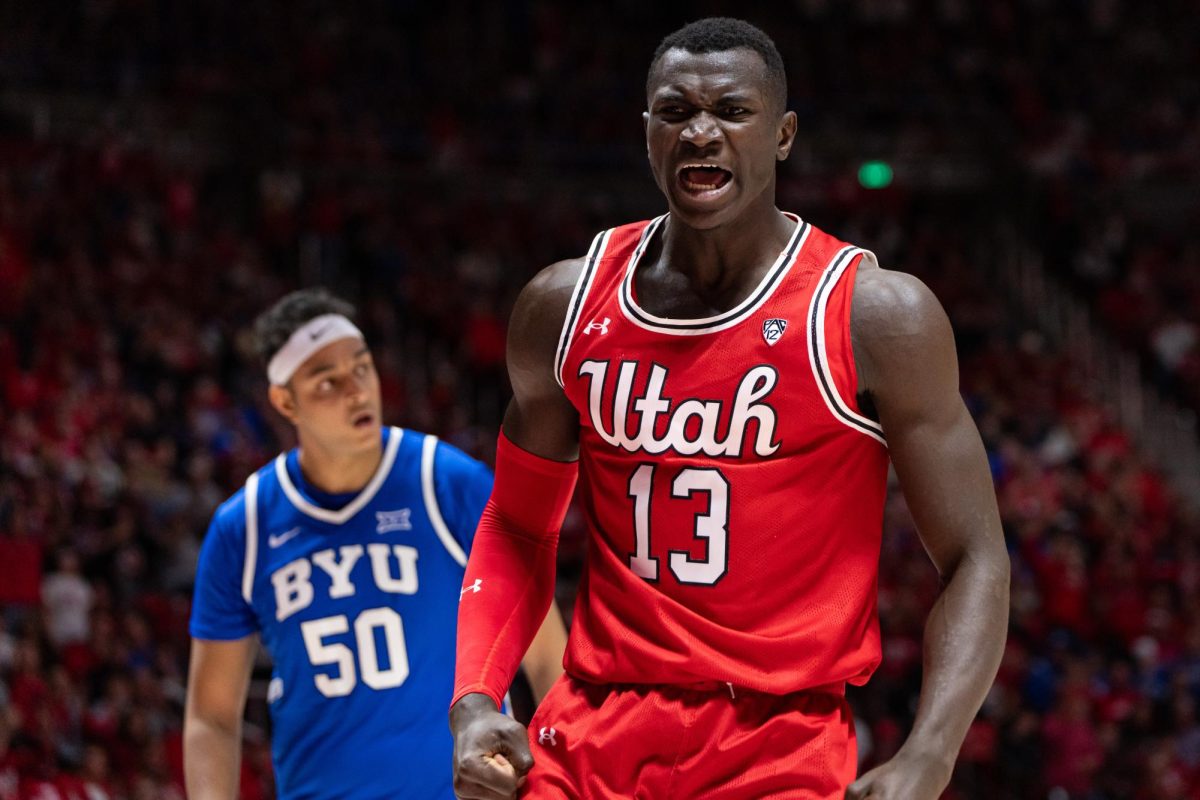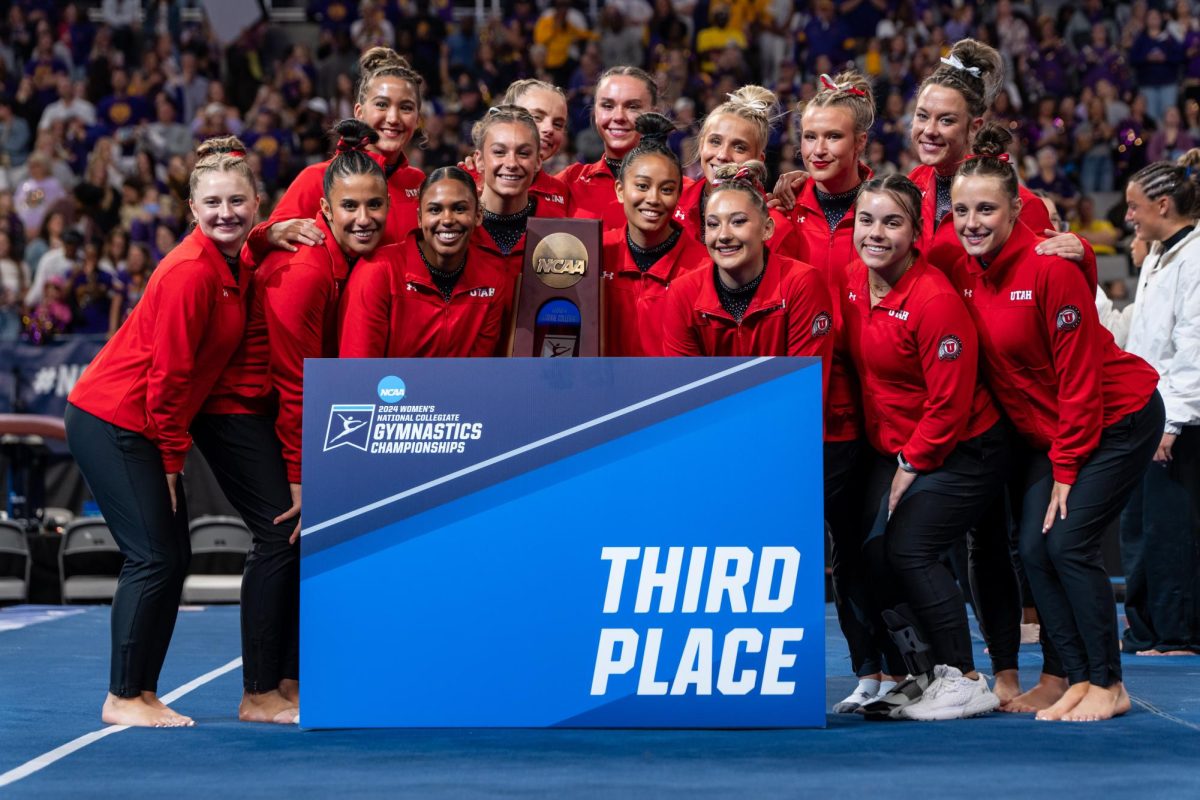Athletes Deserve a Cut
By Dakota Grossman
Participating in college sports is like working a job. The coach is the boss and the athletes are the employees with high expectations for their performance. Similar to being employed, playing a sport can be enjoyable, but at times it is consuming and strenuous. The only difference between the two is that the athlete is not getting paid like the employee is.
As a cross country and track runner for the University of Utah, I am aware of how much time, sacrifice and commitment goes into collegiate sports. As athletes, we are privileged with other benefits and opportunities beyond a paycheck, but they are not equally distributed nor do they stave off financial stressors. Depending on the popularity of the sport and what type of athlete you are, the form and amount of benefits change. For example, men’s Division I football programs have access to far more scholarships and perks than women’s tennis because the sport brings in more revenue. Regardless of how much money sporting events, merchandise and promotions make, the athletes rarely see any of that money returned to them.
Without the players there is no such entertainment, or in other words, money brought in.
According to USA Today, “The NCAA isn’t the only institution swimming in money. Twenty-four school athletic programs made more than $100,000,000 in the 2014-15 athletic year with Texas A&M University topping the list at $192,608,876.”
This revenue could be shared with athletes, which in turn could have positive benefits. It would improve financial stability, and it would teach money management skills equal to what those who are employed are learning.
The reason student-athletes should receive compensation is because they simply do not have time to add a job to their schedules. NCAA rules restrict athletes to 20 hours of practice time a week, which fluctuates depending on which sport they participate in. However, according to Business Insider, it was reported that “[student-athletes] practice at least 30 hours a week on average, with some sports reporting weekly practice commitments of more than 40 hours.”
In addition to the 20 hours, we also spend time doing pre and post practice recovery work or rehabilitation, plus team activities and meetings. The amount of time spent at practice is equivalent to that of a part-time job.
Many athletes who are not awarded scholarships or perks do not have the time to seek employment even if they wanted. Those who do have jobs in addition to their academics and athletics often feel overwhelmed. I myself have found it difficult to maintain a part-time job or an internship while competing in collegiate sports and pursuing my degree. Taking a full semester of classes, practicing 20 hours or more a week, doing everyday obligations and chores and maintaining a healthy lifestyle makes for busy days.
I do not want to sound ungrateful, nor am I saying that athletes do not already receive any help or benefits, because they do, but my argument is that some athletes don’t. I love representing Utah, and I do that to the best of my abilities, but it requires sacrifice. There are many who do not get paid in any form for their efforts and dedication, like walk-ons, for example. These athletes join the team without any prior recruiting or scholarship offers. There are also people who are recruited for their talents, but are still not offered aid. Walk-on or not, student-athletes should be paid no matter their status on the team or popularity of the sport they play.
Playing Has Other Perks
By Kyle Garahana
Renowned American philosopher John Dewey is quoted for saying, “Education is not preparation for life; education is life itself.” Unfortunately, when it comes to college athletics, the topic that dominates the conversation is the almighty dollar.
Given the amount of money universities across the nation are making off college athletics, it’s understandable. College football programs can bring in anywhere from $400,000 to $22 million for making it to a bowl game. Naturally, college athletes feel obligated to a percentage of these profits because they play an intricate role in these earnings for their schools. Does that mean a check should be cut for these players?
What message are we sending to America’s youth if they realize they can start lining their pockets with green bills if they are a student-athlete? Placing such an emphasis on money in a college atmosphere is a big middle finger to academia.
Furthermore, it’s hard to overlook all of the special privileges college athletes are already granted. These players, for the most part, are receiving a top-notch college education at little or no cost to them or their families. This value is extremely overlooked in today’s society.
Take the University of Utah for example. A freshman nonresident taking a full course load would pay $11,770.24 per semester. For a four-year degree, assuming tuition rates stay relatively the same, that is a value of $94,161.92. Throw in the free or discounted room and board, meals and cost of attendance awards from the NCAA typically ranging in the low thousands per year, college athletes are definitely being reasonably compensated for their roles.
Let’s also not forget the perks of free training and access to continuous physical therapy and coaching that these athletes receive. This is another form of education that is often overlooked and undervalued. Even if these athletes don’t end up playing at a professional level, they are often set up for futures in coaching, training or broadcasting when they are finished with their collegiate careers. This advantage afforded to college athletes sets them up on a career path for a bright future, something I would argue giving them lump sums of money would not necessarily do.
Figuring out the correct and moral way to hand out money to athletes is the biggest road block, and without a secure, reasonable and fair compensation scale set that addresses all issues and possible hazards, amicably paying college athletes needs to continue to be barred.
A hasty and simple plan is not a resolution that should be explored as the residual effects are too looming. Corruption and Title IX lawsuits are already issues that plague the NCAA and more problems would arise if all college athletes were to get paid.
There is no doubt that extra strain is placed on student-athletes with the rigors of practices, training and traveling for games, but until a fair compensation packet is established, perhaps an emphasis and even an upgrade to the student-athletes’ educational experiences, they shouldn’t be receiving paychecks.
Student-athletes are often given access to private tutors and granted exceptions with their schoolwork, but perhaps the gobs of money these colleges are making off athletics should go back into revamping their experience at the college. Maybe more college athletes would appreciate the value of the education they receive if it better reflected the revenue they generate.


















Matt Holton • Dec 5, 2017 at 5:03 pm
Nice article Dakota, great to see that you guys are adding to conversation about money in sports and the blurred lines between amature and pro athletes. Keep up the good work. I think it is crazy the amount of money that come into the big sports like football, yet athletes have no access to monetizing their personality or athletic ability.